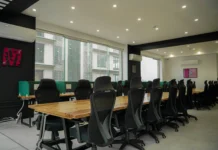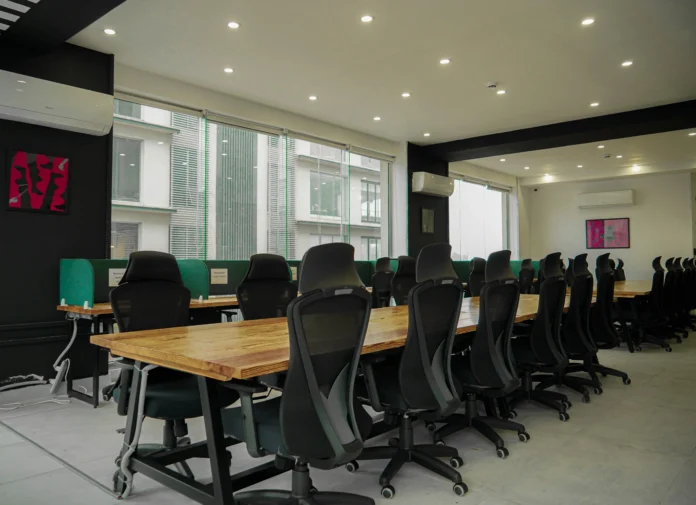In a nondescript building in Lahore, Omar Shah pulls up a spreadsheet that tells two stories. The first column shows Pakistan’s co-working revenue per seat: Rs.30,000-40,000, largely unchanged for three years. The second shows Saudi Arabia: $1,500 per seat. “Cost is 5x but revenue is 10x,” he says, with great confidence and pride in his eyes, during a conversation with Profit.
They are not expanding to Saudi Arabia. They are graduating.
If you go back to January 2025, the situation looked extremely bleak. Pakistani startups raised $42.5 million all year, less than what some companies raised in a single round three years ago. Co-working spaces were bleeding customers. The average lifespan of a co-working space in Pakistan has been around two years. Contrary to that, COLABS claims it has been profitable for more than three. Now, in Q1 2026, COLABS will open its flagship Riyadh location with Shorooq Partners and Waseel Investment backing. The same week, another Pakistani co-working space will likely shut down. The content in this publication is expensive to produce. But unlike other journalistic outfits, business publications have to cover the very organizations that directly give them advertisements. Hence, this large source of revenue, which is the lifeblood of other media houses, is severely compromised on account of Profit’s no-compromise policy when it comes to our reporting. No wonder, Profit has lost multiple ad deals, worth tens of millions of rupees, due to stories that held big businesses to account. Hence, for our work to continue unfettered, it must be supported by discerning readers who know the value of quality business journalism, not just for the economy but for the society as a whole.To read the full article, subscribe and support independent business journalism in Pakistan
























